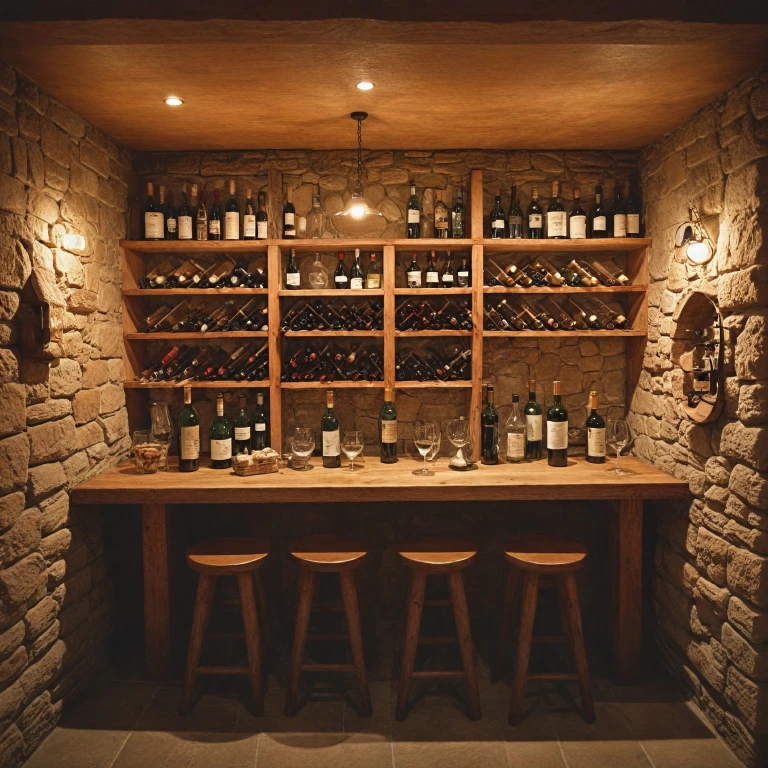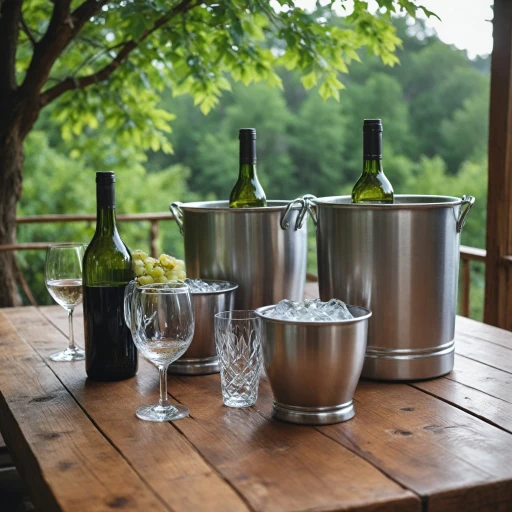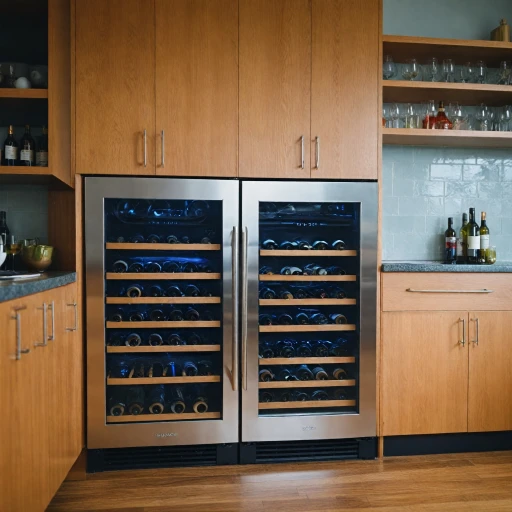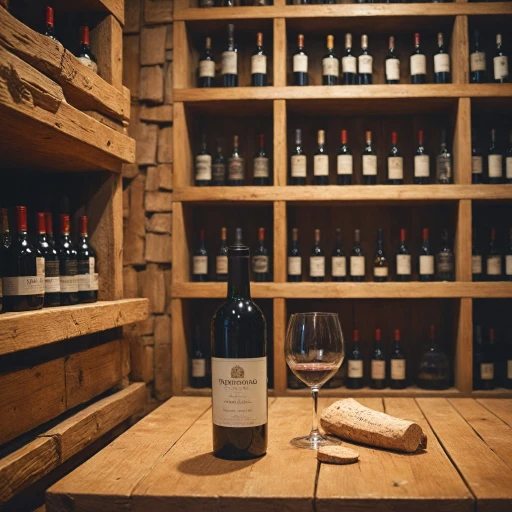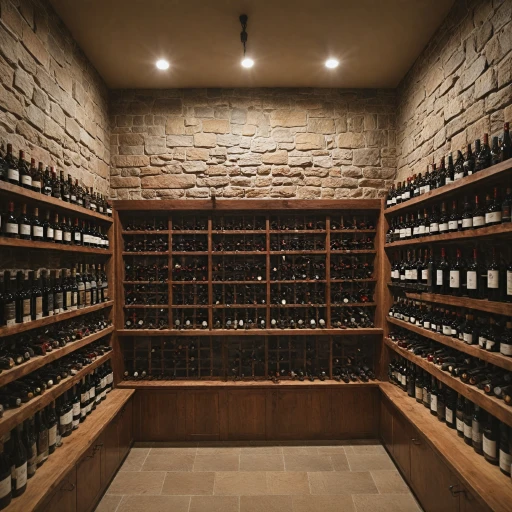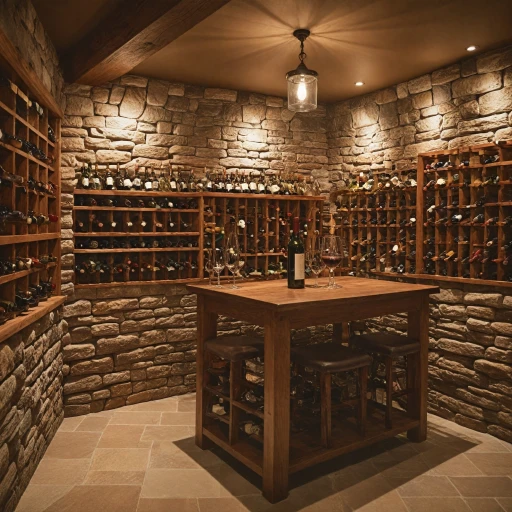Understanding the Role of a Wine Corker
The Importance of Wine Corkers in Preservation
In the realm of wine making, the wine corker's role extends beyond the mere functionality of placing a cork into a bottle. It is instrumental in ensuring the preservation and quality of the wine. Corkers are vital tools that every wine lover and enthusiast in beer making should consider indispensable. The process of efficiently corking wine bottles speaks volumes about the care invested in maintaining the wine's authenticity and flavor over time.
Different types of corkers, from manual options like the hand corker to more robust models such as the floor corker or even technological advancements like the pneumatic bottle corker, offer unique advantages in the wine bottling process. These tools are designed to deliver varying degrees of pressure and consistency, ensuring the wine remains in optimal condition inside the bottle. Furthermore, understanding the precise function of these devices is key to mastering the art of wine corking.
Whether you plan to partake in wine corking as a hobby or need to select the right product for effective wine storage, recognizing the pivotal role that a wine corker plays in maintaining wine integrity is crucial. The choice of corkers—from traditional models to those incorporating stainless steel components—depends on your specific wine making needs and preferences.
Choosing the Right Wine Corker for Your Needs
Matching Your Needs with the Perfect Corker
Choosing the appropriate wine corker is vital to enhance your wine making experience and ensure the quality of each bottle. Wine lovers can find themselves overwhelmed by the variety of corkers available, ranging from floor corkers, hand corkers, to more innovative devices. Here’s a guide to assist you in navigating through these choices:- Manual Corkers: These are generally straightforward and budget-friendly, often featuring a double lever mechanism. Manual wine corkers work efficiently for small batches. Models like the hand corker and the double lever corker are popular among beginners due to their control and ease of use.
- Floor Corkers: A staple for many wine making enthusiasts, floor corkers offer stability and leverage, making them great for larger production. Stainless steel options are available for those looking for durability at a moderate price point.
- Pneumatic Bottle Corkers: For those involved in professional wine or beer making, pneumatic corkers might be worth considering. These offer precision and efficiency, ideally suited to handle higher cork count effortlessly.
- Specialty Corkers: Devices like the Haley corker cater to niche markets such as Belgian beer making, aligning with specific needs and ensuring bottles are sealed impeccably.
Step-by-Step Guide to Using a Wine Corker
Mastery in Handling Your Corking Equipment
For wine lovers venturing into the realm of wine making, the ability to efficiently use a wine corker is essential. Whether you're corking your own wine or a Belgian beer, understanding the nuances of handling a corker can make all the difference in preserving the quality of your beverages. Quality wine involves more than just choosing the best wine bottle or corker; it's about mastering the process from beginning to end.
Preparation: Setting the Stage for Success
Preparation is key. Start by ensuring that your corker—be it a manual wine corker, double lever bottle corker, or floor corker—is sturdily positioned on a stable floor or surface. Check all components, from moving parts to the corker's alignment, to ensure smooth operation. Having high-quality corks on hand is equally important, as they play a critical role in maintaining the balance of flavor and aroma in stored wine bottles.
Completing the Task: Corking Like a Professional
Once everything is in place, place a cork into the corker, ensuring it fits snugly. Insert the wine bottle beneath the corker with precision. If you're using a floor corker, apply even pressure to insert the cork without causing damage to the neck of the bottle. For those with a hand corker, synchronized movement is essential to achieve the desired result. Watching your technique is paramount, especially if you're gifting your homemade wine or beer to ensure an immaculate presentation.
Post-Corking: Ensuring Longevity of Your Corker
After the corking process, attention turns to cleaning and maintenance. Detailed care can significantly extend your wine corker's lifespan, ensuring it remains a reliable companion in your wine making journey. High-quality products often come with higher price points, like those highly-rated corkers found on platforms like Amazon, but their durability and performance often justify the investment.
Delivery and Beyond
Understanding these steps will not only enhance your wine bottle preservation efforts, it will also instill confidence in using other similar wine and beer making products. As a gesture to fellow wine enthusiasts or for your own collection, consider enhancing your wine collection strategically with advanced storage techniques.
Explore further into sophisticated solutions for storing your wine, which would also complement the art of corking, by visiting humidity-controlled wine fridge solutions for a curated experience.
Maintenance and Care for Your Wine Corker
Preserving Your Wine Corker for Longevity
Proper maintenance and care of your wine corker are essential to ensure its longevity and efficiency. Whether you're using a manual wine corker or a more advanced pneumatic bottle corker, consistent upkeep can make a significant difference in your wine making experience. Here are some practical tips:
- Regular Cleaning: After each use, clean your corker with a damp cloth to remove any wine residue or cork particles. For stainless steel components, ensure they are thoroughly dried to prevent rusting.
- Lubrication: For manual wine corkers, especially the double lever models, occasional lubrication of moving parts can ensure smooth operation. Use food-safe lubricants to avoid contamination.
- Storage: Store your corker in a dry, cool place. If you own a floor corker, ensure it is kept on a stable surface to prevent any accidental damage.
- Inspection: Regularly inspect the corker for any signs of wear or damage. This includes checking the alignment of the corker wine jaws and ensuring that all screws and bolts are tightened.
- Replacement Parts: Keep an eye on the condition of replaceable parts like the corker wine jaws or rubber stoppers. Replacement parts are often available on platforms like Amazon, and timely replacement can prevent more significant issues.
By following these maintenance steps, wine lovers can ensure that their bottle corker remains in top condition, providing consistent results with every batch of wine or beer making. Proper care not only extends the life of your corker but also enhances the quality of your bottled products, making it a worthy investment for any enthusiast.
Innovative Corking Techniques from a Wine Cooler Guru
Crafting Unique Wine Corking Techniques
The art of corking does not solely depend on mastering the basics; it's about infusing creativity and expertise that a wine cooler guru brings to the table. Here are some innovative corking techniques that can enhance your wine bottling experience:- Adapting to Different Corks: Wine corks come in varied sizes and materials. A seasoned wine corker knows how to adapt techniques suited for corks like the traditional cork, synthetic variations, and apr corks found in some beer making kits. This adaptability ensures your wine and beer stay perfectly sealed.
- Innovative Use of Floor and Hand Corkers: Each corker model, be it a manual wine corker, floor corker, or the haley corker, has its unique advantages. Experimenting with these tools can reveal more efficient ways to bottle wine, especially when doing large counts of wine making or belgian beer. This experimentation can also be influenced by the shipping and delivery context, for instance, by considering different bottle shapes or the count required for a specific batch.
- Integrating Wine Cooler Equipment: A fusion of techniques from wine cooler products and corking methods often leads to discoveries that enhance bottle preservation. The thoughtful interaction between corkers and pneumatic bottle equipment can elevate your product's quality.
- Using Stainless Steel Components: Incorporating high-quality materials such as stainless steel in the corking process can reinforce the longevity of the corker and ensure a more robust seal on wine bottles, making it a valued gift for wine lovers.
- Customer Feedback and Corker Reviews: Embracing feedback from online platforms like Amazon can provide insights into real-world applications. Reviews with high stars often highlight clever hacks in using corkers which can be a goldmine for both novices and seasoned enthusiasts in corker wine art.
